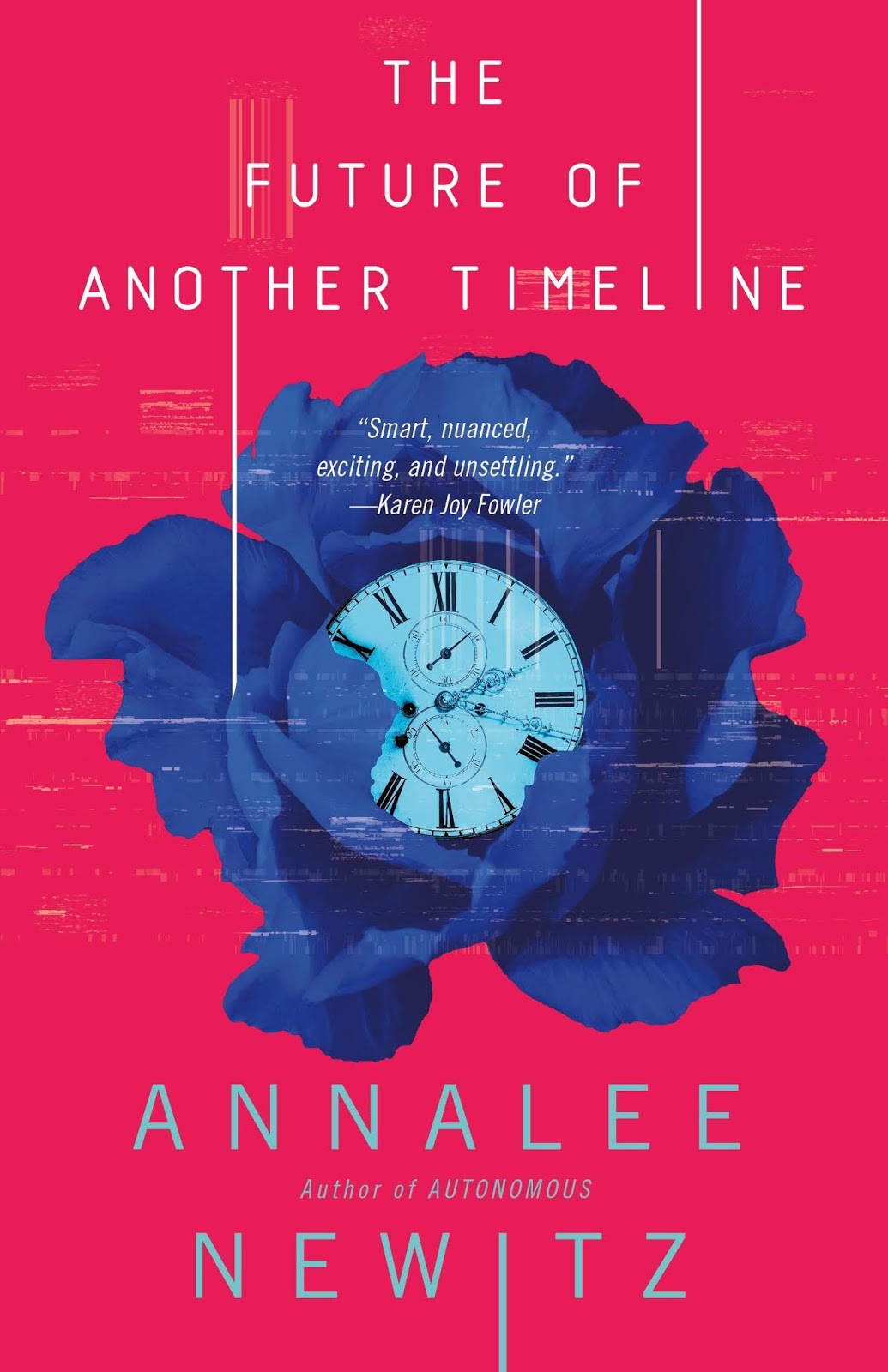1992: After a confrontation at a riot grrl concert, seventeen-year-old Beth finds herself in a car with her friend's abusive boyfriend dead in the backseat, agreeing to help her friends hide the body. This murder sets Beth and her friends on a path of escalating violence and vengeance as they realize many other young women in the world need protecting too.
2022: Determined to use time travel to create a safer future, Tess has dedicated her life to visiting key moments in history and fighting for change. But rewriting the timeline isn’t as simple as editing one person or event. And just when Tess believes she's found a way to make an edit that actually sticks, she encounters a group of dangerous travelers bent on stopping her at any cost.
Tess and Beth’s lives intertwine as war breaks out across the timeline--a war that threatens to destroy time travel and leave only a small group of elites with the power to shape the past, present, and future. Against the vast and intricate forces of history and humanity, is it possible for a single person’s actions to echo throughout the timeline?
I am still internally screaming about something in this book I can't even talk about here because it is a massive spoiler.
😱 😱 😱
OK, I found some people to talk it over with, so that's out of my system now. Moving on to the actual review.
As you might expect from a book about time travel, there are a couple of story threads in this book, though they get a little more tangled up than non-time travelling flashback sequences tend to. We have Tess, who is from the near future and working with a secret feminist cabal to stop misogynists from editing women's rights out of the timeline (loosely speaking). She travels to various times, with a particular focus on 1892-3 with regards to her research and secret mission. And then in the 1990s we have some punk rock teenage girls living their slightly crappy lives and going to gigs, as seen through the eyes of Beth, one of the teens.
The 1990s storyline serves to highlight the differences between the starting timeline and the parallel world that we, the readers, live in. It also sets up a background for Tess and people like her, especially when Tess starts trying to change her past by illegally travelling to the 1990s. This is tangentially related to my internal screaming above.
But the overarching story is about fighting for rights and the methods by which history is made/changed. An ongoing debate in the book concerns the efficacy of collective action vs the Great Man theory; whether history can be changed incrementally and/or whether killing Hitler actually does anyone any good. But this is more a book about the characters, mostly women, looking out for each other, no matter the time period. If that's your jam, then this may well be the book for you.
Overall I really enjoyed this book. Some parts of it took my by surprise and there was more violence than I expecting going in, but it was violence born out of the anger of the oppressed as much as anything else, and the book was very much in conversation with the justification, or not, of some forms of violence. While there might be a bit of a squick factor associated with some of the violence, I thought it was explored thoughtfully in the book as a whole.
I highly recommend The Future of Another Timeline to fans of time travel and/or feminism. This is the first thing I've read by Annalee Newitz and I am interested in picking up more of their work in the future.
4.5 / 5 stars
First published: 2019, Tor Books
Series: No
Format read: ePub
Source: Purchased from Kobo












